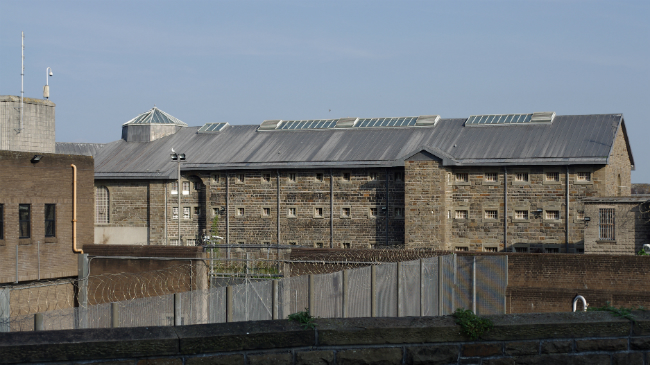Prisoner assaults and self-harm hit record highs in English and Welsh prisons, but how can philosophy turn the tide?

High levels of violence, self-harm, and overcrowding make Cardiff Prison among the worst in the UK, but teaching philosophy may be a solution.
A new Cambridge University study shows teaching philosophy to prisoners could reduce rising levels of violence in HMP Cardiff.
The Cardiff prison had over 200 prisoner assaults and 201 instances of self-harm in 2016, according to newly released figures by the Ministry of Justice (MoJ).
Last year, instances of self-harm and assaults in English and Welsh prisons rose by 12 per cent compared to the previous year, reaching record highs.
According to the study, teaching philosophy to prisoners makes them “calmer” and “more able to express their point of view.”
Kirstine Szifris, who conducted the study, explored the possible benefits of teaching philosophy in two English prisons, HMP Grendon and HMP Full Sutton, for six months.
The classes focused on philosophic conversation rather than teaching prisoners the history of philosophy.

“I have found that my prisoner-participants were deep thinkers, fully capable of intellectually challenging conversation,” Szifris said.
According to her, prisoners often put up “macho fronts” in order to survive prison life, but talking about philosophy enabled them to “drop the mask.”
“Many were earnest in their attempts to find meaning in the prison environment … with a passionate interest in self-improvement,” she said.
A source working in Cardiff Prison said on condition of anonymity: “A lifetime of experiences of trauma, rejection and social exclusion does not make for people who have much faith in themselves or trust in others.”
Educational activities, especially teaching philosophy, can “encourage exploration, self-reflection, and development of new interests and skills among prisoners,” the study shows.
Cardiff Prison, which does not currently have philosophy classes, operates a range of clases ranging from maths and numeracy to creative writing, poetry, and drama.
A recent investigation by the HM Chief Inspector of Prisons has found that education at Cardiff Prison is “of good standard.
“Classrooms and workshops were calm environments where prisoners felt safe and behaved well,” said the report.

Increase in violence and drug use
An increase in violence and drug use combined with acute understaffing over the last few years has been a problem for people working in Cardiff Prison.
In 2016, InterCardiff reported a surge in drug use and the smuggling of a drug called Spice in the prison.
But the Cardiff Prison source said: “There was a high number of operational staff leaving the prison service, thus making the staffing structure unstable.
“The current governor is continuing to work hard to stabilise the prison by making it a safe and secure environment for all,” she said.
Figures reveal shocking state of prisons in England and Wales https://t.co/4B9TFHdQFX
— Prison Reform Trust (@PRTuk) February 19, 2018
Despite a recent upswing in prisoner-to-staff assaults across England and Wales, the source said she feels safer “in prison than in the community due to a high level of security work and risk assessments.”
“I think the most disheartening part of working in the prison is the amount of times that I’ve heard prisoners say that they prefer being inside prison than out because it meets their basic needs: warmth, structure, food and shelter,” the source said.
(function(d){var js, id=”pikto-embed-js”, ref=d.getElementsByTagName(“script”)[0];if (d.getElementById(id)) { return;}js=d.createElement(“script”); js.id=id; js.async=true;js.src=”https://create.piktochart.com/assets/embedding/embed.js”;ref.parentNode.insertBefore(js, ref);}(document));

